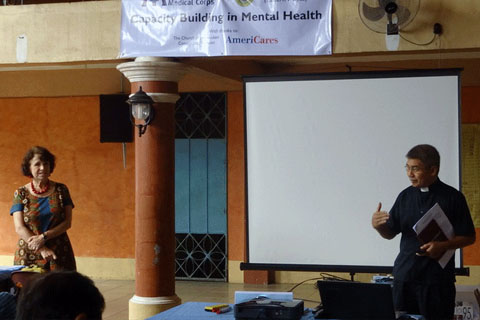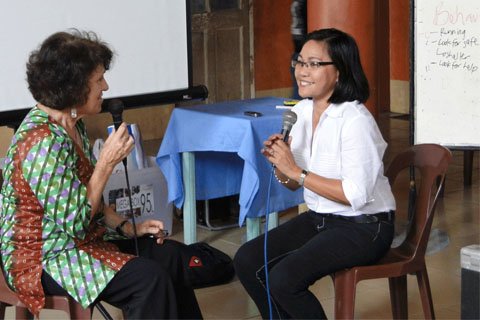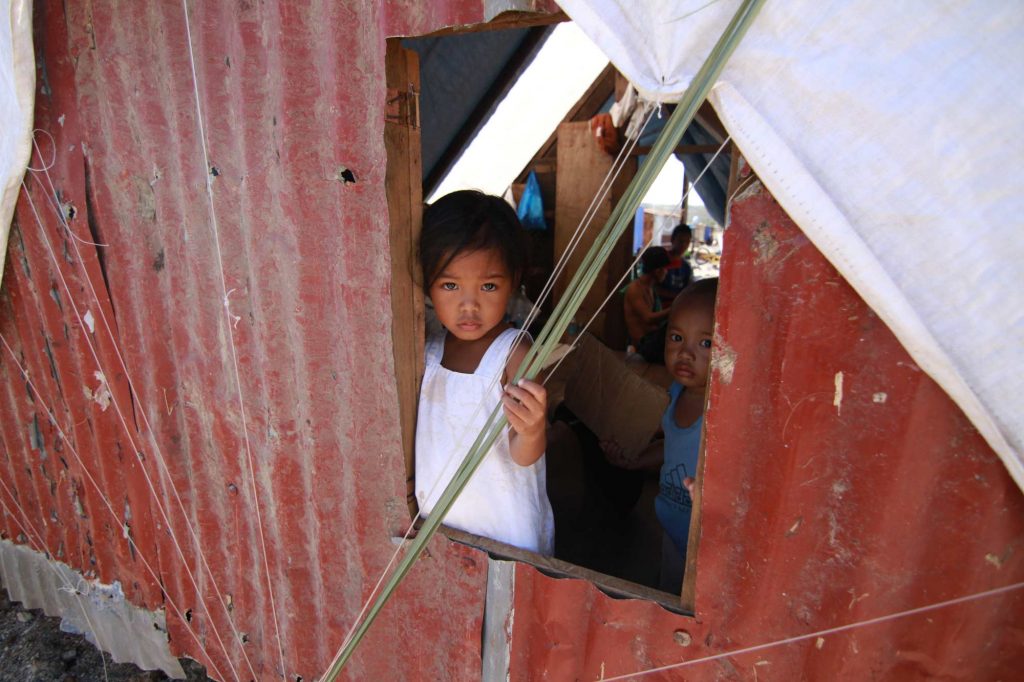Sitting in the events hall of the Immaculate Conception Church in Burauen, Leyte in the Philippines, twenty doctors and nurses from rural health units gathered to learn how they can better care for patients with severe mental health issues. Representing 9 municipalities that were badly affected by Typhoon Haiyan, these doctors and nurses are the primary health care providers for a population of over 200,000 people. While health care facilities are now receiving more stable resources to administer primary care, doctors and nurses in this area continue to struggle with how to care for patients with mental health issues. While mental health care in Leyte has always been scarce, these limited resources have all but vanished in the wake of the typhoon. Separated from their regular support structures and, often, left alone after the death of caretakers, individuals with severe mental health issues are some of the most vulnerable in International Medical Corps’ targeted communities.
“A few weeks ago, we had a patient come to our clinic who appeared to have a severe mental disorder,” says Lorilee, a nurse from Julita Rural Health Unit. “He became violent, and we didn’t know how to deal with him — none of us has that kind of training. So we had to bar the door, because we didn’t know what to expect.”


Due to the lack of mental health resources, the Department of Health in Leyte requested support to train doctors in dealing with disorders ranging from depression, anxiety, or behavioral disorders to psychosis. On January 14th, International Medical Corps began a 9-day training module to integrate mental health into primary health care services. With financial support from AmeriCares, International Medical Corps’ mental health specialist Dr. Lynne Jones, OBE, FRCPsych invited a doctor and nurse from each of seven target municipalities for training on the World Health Organization’s mhGAP Intervention Curriculum. Over three days, Dr. Jones and Dr. Albert Maramis of the World Health Organization shared their breadth of experience in post-disaster settings, and taught the health care providers about mainstreaming mental health concerns into standard care.
“Many patients will enter your clinics with a headache or with trouble sleeping, and you as health care professionals will rightly focus on treating their physical symptoms,” says Dr. Jones. “But if we dismiss patients with mental health issues immediately, we will never discover or treat the real problem that is ailing them.”
After the initial three-day module, the mental health training will continue for three additional days in February and three in March. In the meantime, International Medical Corps mental health specialists will offer on-the-job supervision to the training participants, and community health workers will be trained in case identification, advocacy and community support. In the coming months, International Medical Corps will also streamline mental health and psychosocial support within our existing health and nutrition programs, offering comprehensive mental health support to the affected communities.
